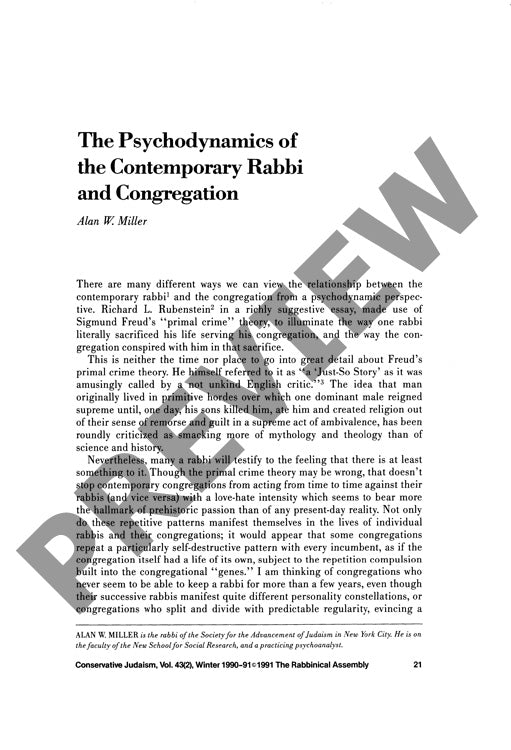The Psychodynamics of the Contemporary R
Couldn't load pickup availability
Congregations often recreate destructive relationship patterns with successive rabbis, pointing to deeper systemic issues rather than individual failings. Drawing from forty years as both rabbi and psychoanalyst, Miller explores the unconscious forces shaping synagogue dynamics through multiple theoretical lenses, including Freud's primal crime theory, Bion's basic assumption groups, and psychopathological frameworks. These perspectives reveal how unconscious elements frequently disrupt the essential "work group" functions of religious communities. By integrating psychodynamic understanding with traditional Jewish textual study, Miller envisions a transformative approach to rabbi-congregation relationships. The Torah reading cycle emerges as analogous to psychoanalytic process, offering narrative, non-narrative, and anti-narrative elements that foster psychological and spiritual development. Miller advocates training rabbis in both psychological and traditional domains, arguing that psychodynamic awareness represents a paradigmatic shift as significant as the introduction of antibiotics in medicine. Meaningful Jewish religious life, he concludes, requires sustained engagement with sacred texts within a psychodynamically informed community framework, with rabbis serving primarily as facilitators of transformation rather than mere pastoral caregivers.

More Information
-
Physical Description
-
Publication Information
Published 1990-1991
ISBN
-
Publication Credits
Alan Miller

